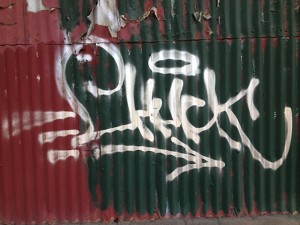When Police Officers Shade Their Testimony
 “Runner!”
“Runner!”
This is what one police officer yells to the other two officers, and all three officers take off in pursuit of a suspect who has decided to flee.
According to the officer’s testimony at trial, the officers are 20 feet behind the suspect and “closing fast” when the suspect suddenly comes to full stop. The suspect bends down by a storm drain. He gets on both knees. He tosses a plastic object into that storm drain, making sure he flashes it at the police officers so that they get a good look. He then gets back up and starts to run again. The police do not catch him until another 50 feet.
With over 12 years of experience, the police officer who testified was obviously anticipating the standard cross-examination questioning his ability to observe the object that was thrown. So if he was really 50 to 100 feet away from the suspect, he thought he should change this to 15 to 20 feet. This might convince the judge that he did in fact get a look. Because, after all, you can’t leave these things to chance.
At the same time, the officer obviously did not think everything through: It defies all logic – and the laws of nature – for him to testify that the police officers could not cover a distance of less than 20 feet while running at top speed during the time it took the suspect to perform all those actions. I mean, really?
I wish I could say that, in this case, the police officer who testified was too clever for his own good and that the judge quickly discounted his testimony while questioning his credibility with respect to everything else. Falsus in unum, falsus in omnibus.
But the judge believed the officer. And he credited the officer’s testimony in order to convict the defendant. In so doing, the judge sent an unmistakable message to the officer who testified, to every other officer who was aware of this particular testimony, and to every officer who will ever be trained by these officers. That message is that courts will tolerate it when police officers shade their testimony in order to secure a conviction.
